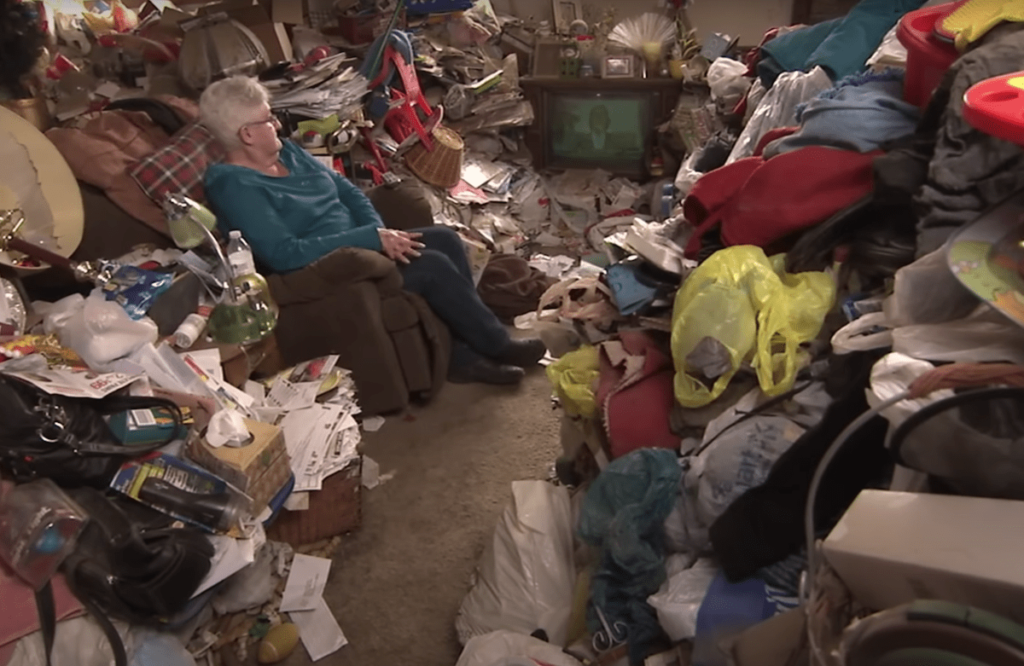The long-running reality TV series Hoarders returned on Monday, Jan. 8 with another season featuring people struggling with compulsive hoarding disorder confronting their diagnosis and clearing out their unsafe homes. Despite its popularity, some have accused the A&E show, which premiered in 2009, of exploiting participants and their mental health issues in order to shock viewers with the conditions in which they live. For example, self-identified hoarder Rachel Kramer Bussel wrote in a 2016 Salon article, “While the experts brought onto the show may actually be helping the individual hoarders whose messy homes are shown in all their gory, overloaded detail, what message is A&E sending about these people? In my view, it’s a simple one: Look at how crazy they are!”
RELATED: 5 TV Episodes So Controversial They Sparked Protests.
In a new interview, two Hoarders stars defended it against such criticism, emphasizing that the hoarders receive treatment and that the show seeks to help viewers at home, as well.
“I don’t disagree that there is a shock value,” Robin Zasio, a psychologist featured on Hoarders, told USA Today. “Sometimes I walk in—the more I do this, there’s probably less shock value, but there is still shock—because you see the devastation of how people are living and what it’s done to their life. And that’s just a human condition to have compassion for somebody over their circumstances.”
Zasio explained that all participants are vetted and know what the show involves. “We need to understand that these are human beings, we need to understand that they are coming from life circumstances that have severely or significantly or both impacted them that have led to some behaviors that are not functional,” she said. The psychologist said that the participants work with therapists during their time on the show but are also set up with care for after the cameras stop rolling.
According to the American Psychiatric Association, “People with hoarding disorder have persistent difficulty getting rid of or parting with possessions due to a perceived need to save the items. Attempts to part with possessions create considerable distress and lead to decisions to save them.” Consequences of “serious hoarding include health and safety concerns, such as fire hazards, tripping hazards, and health code violations. It can also lead to family strain and conflicts, isolation and loneliness, unwillingness to have anyone else enter the home, and an inability to perform daily tasks, such as cooking and bathing in the home.”
Zasio told USA Today that in the 15 years since Hoarders premiered, “We have increased our understanding of how to help people and what they need, and really being able to hone in on the complexities of the condition.” She added that there is “not one simple answer” to why people hoard, which is why the series tries to show what “led to this problem” for each participant.
Professional organizer Dorothy Breininger, who has worked with Hoarders since it began, also spoke to USA Today. She said of the participants, “Whatever the situation is, they have nowhere else to turn and no money to make it happen …When it’s a particularly good outcome, it is the most satisfying thing in the world.” The organizer added, “Everyone that I’ve met who hoards is a spectacular human with an outrageously amazing life story.”
For more celebrity news delivered right to your inbox, sign up for our daily newsletter.

